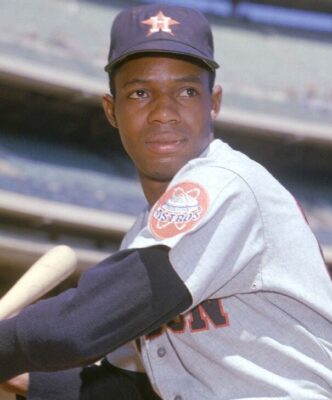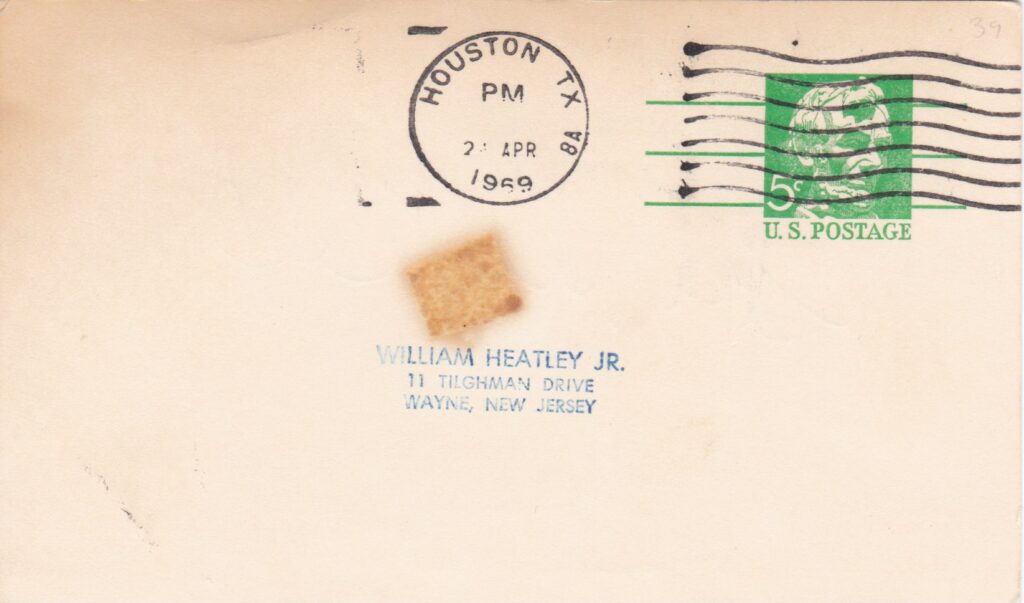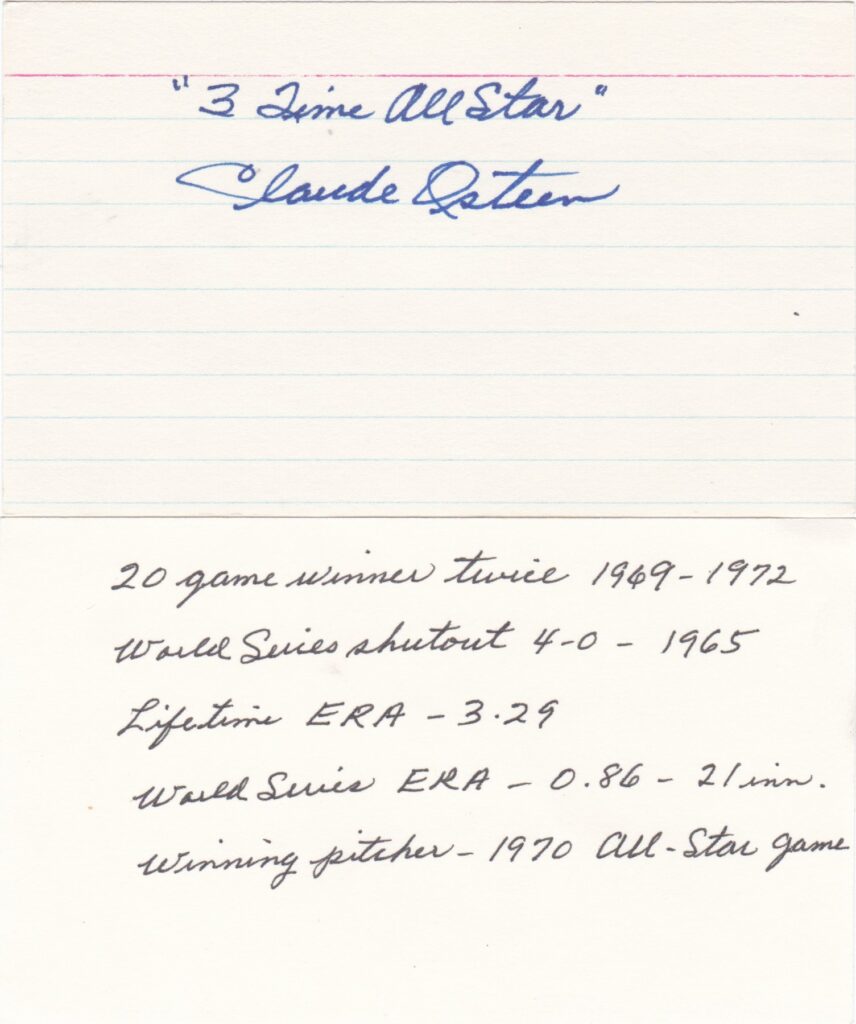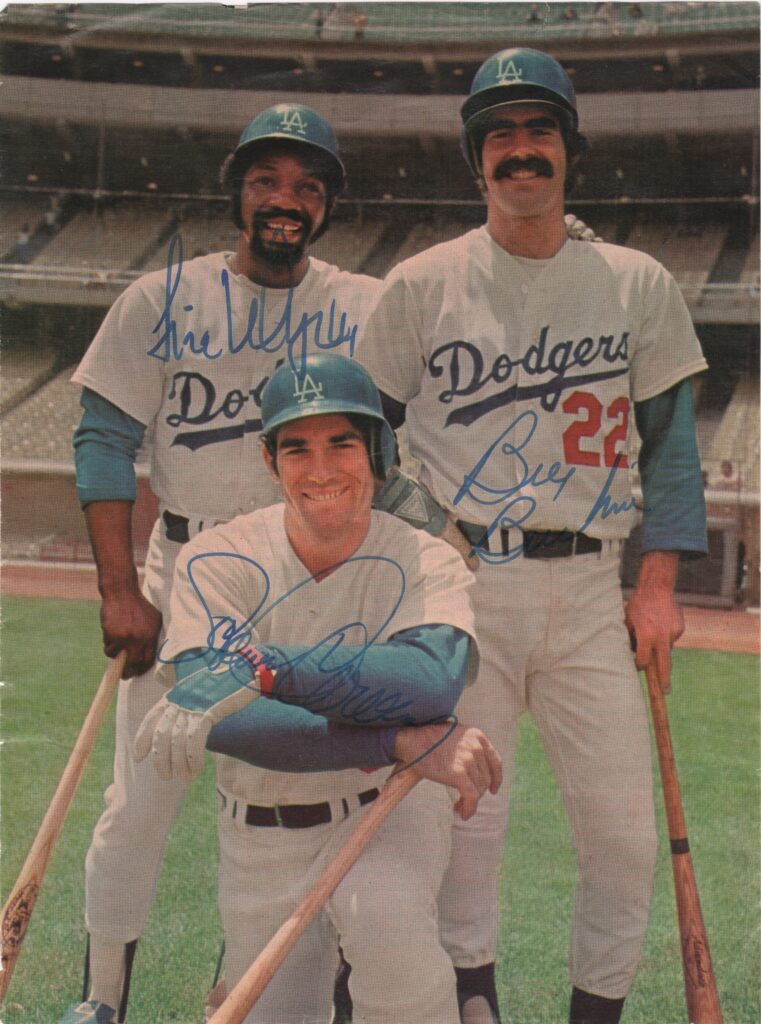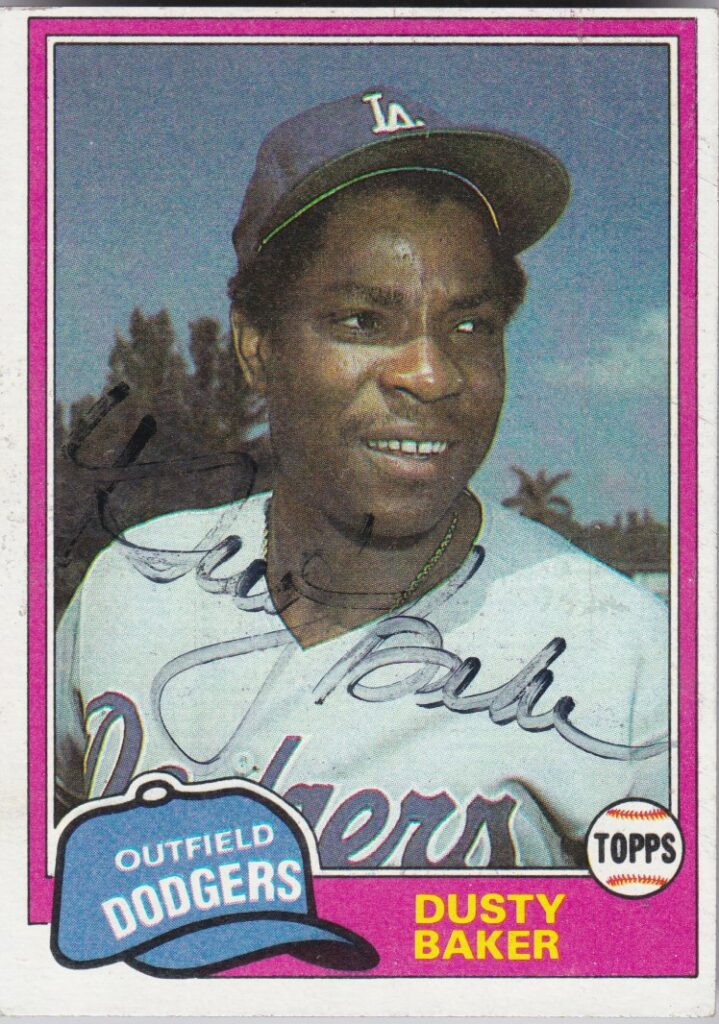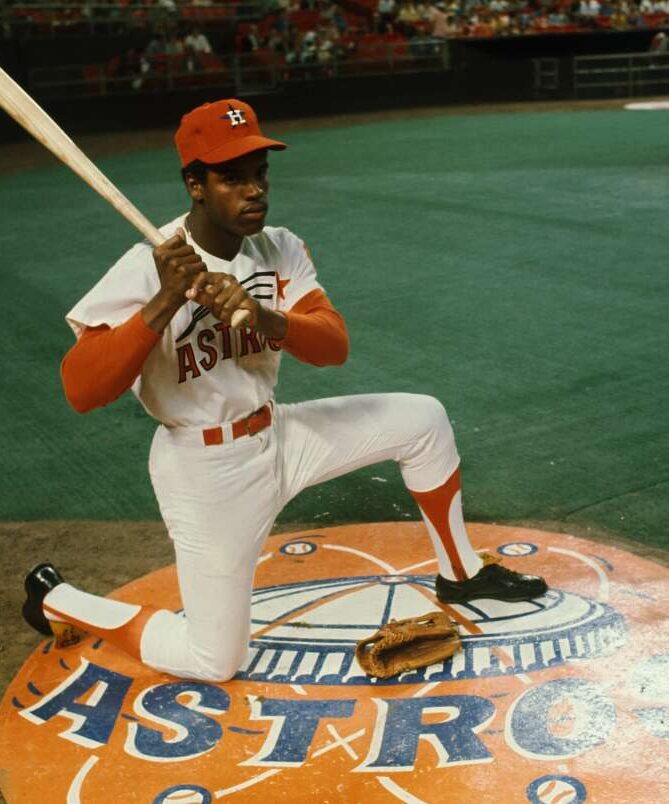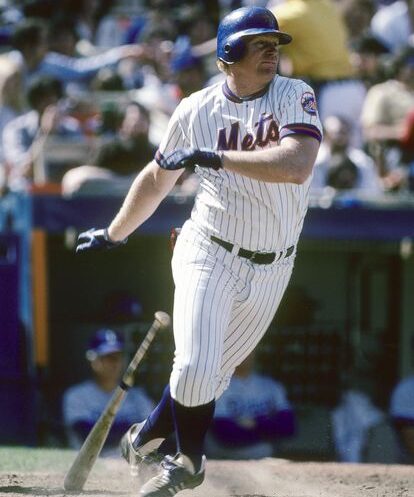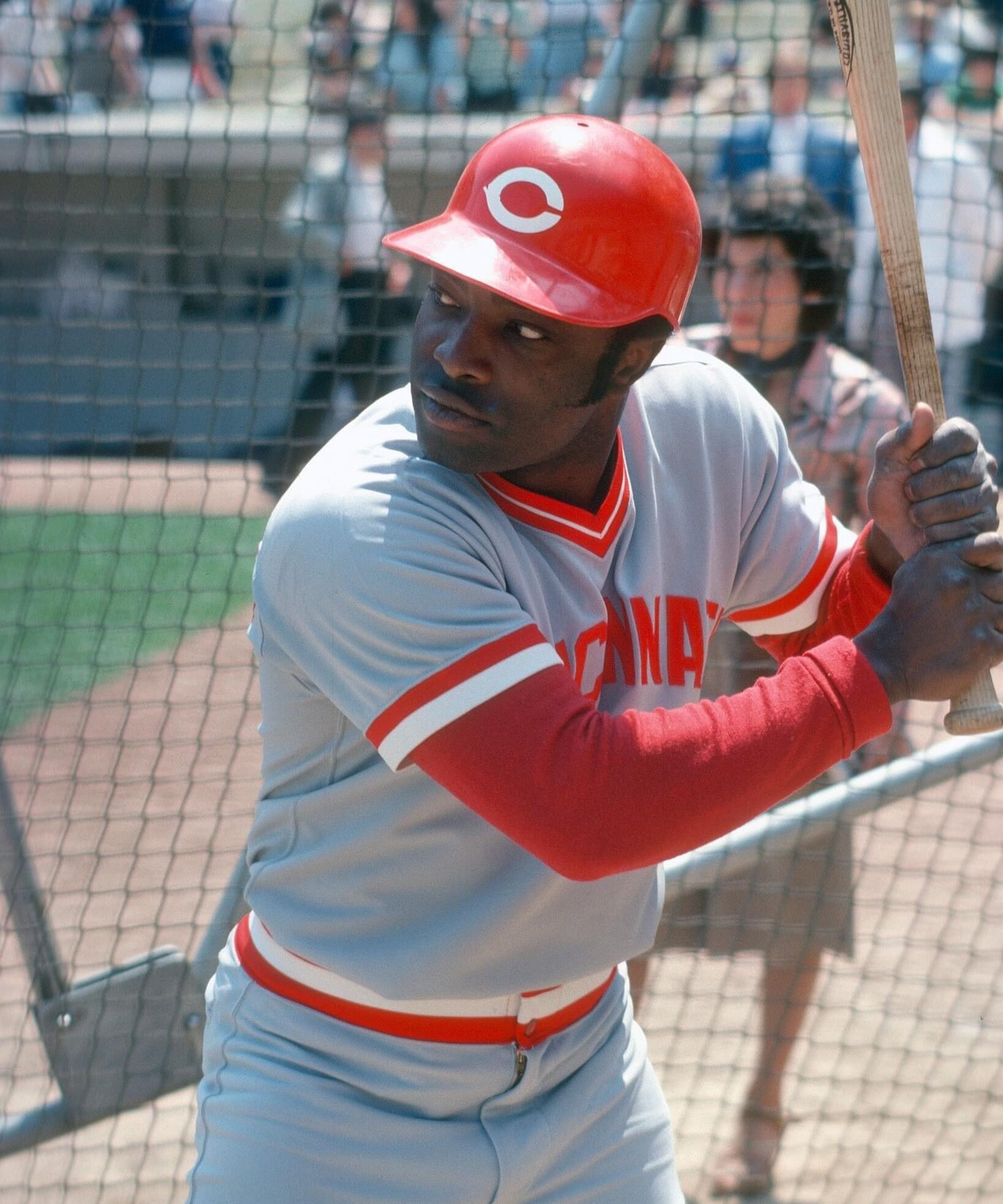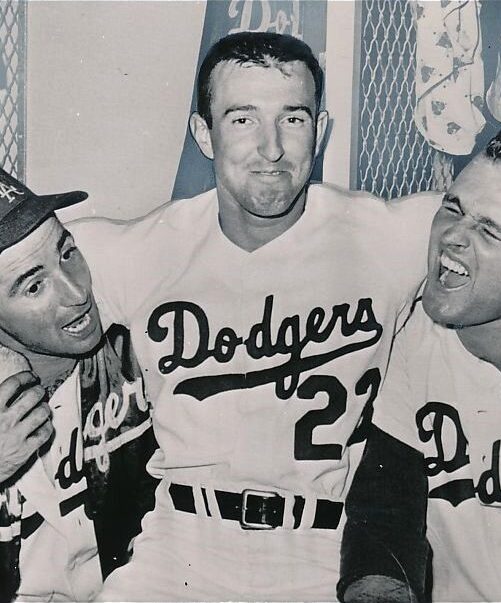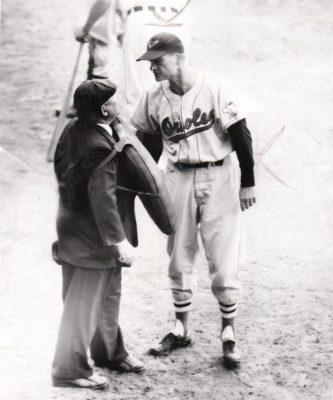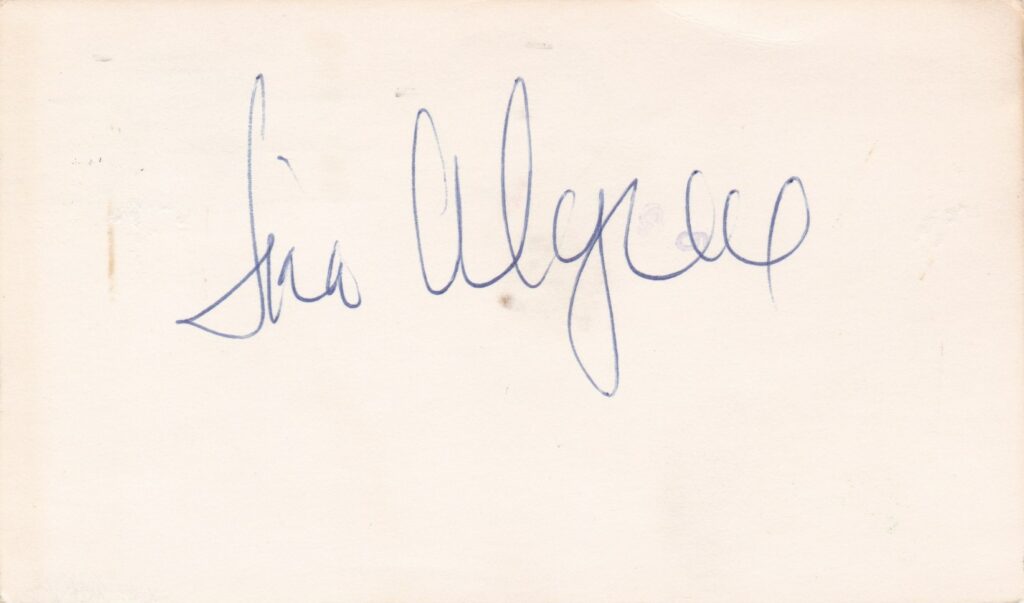
While his career counting numbers seem rather pedestrian, the analytics say Jimmy Wynn is one of the under-appreciated stars of his era.
Wynn made his debut with the Houston Colt .45s in 1963 and remained with the club for his first 11 years in the bigs. During that time the team suffered 8 losing seasons. Playing for sub-.500 clubs in a stadium that obscured his power, Wynn remained under the radar.
Before the franchise’s second season, Houston plucked Wynn from Cincinnati in the 1962 first-year player draft. Now defunct, the rule allowed the drafting of players not on the 40-man roster. Though the Cincinnati native didn’t like the move at first, he soon realized it opened a quicker path to the major leagues.
Wynn got his start in July of ’63 with a young Houston squad. On September 27th Wynn and first-year players Joe Morgan and Rusty Staub appeared as part of the first all-rookie starting lineup in big league history.
By 1965 Wynn became the everyday centerfielder for a 97-loss Houston team that was now known as the Astros. It was a breakout season for the 23-year. Wynn scored 90 runs, slashed 30 doubles with 7 triples, 22 homers, and 73 runs batted in.
Though those traditional numbers seem solid if unspectacular, Wynn brought much more to the table.
His 84 walks were surpassed in the NL only by future Cooperstown men Morgan, Ron Santo and Willie McCovey. He mixed in his 43 stolen bases in 47 attempts while his OPS+ soared to 143. Those figures push Wynn to a 7.4 WAR, a figure bested in the NL only by Hall of Famers Willie Mays, Hank Aaron, Billy Williams and Santo.
During his 9 years as a starting outfielder in Houston, Wynn quietly put up outstanding numbers. Better appreciated seen through today’s more analytical lens, Wynn had an OPS+ of 135 while averaging 4.6 WAR per season in that span. Despite this, he made just one All Star team.
His end in Houston came in a disappointing fashion in 1973. Now 31 years old, Wynn hit just .220. By this time, emerging star Cesar Cedeno fully displaced Wynn as Houston’s marquee player.
In the off season the Astros dealt Wynn to the Dodgers for pitcher Claude Osteen.
His stay in Los Angeles was brief, yet bright. Both years were All Star campaigns. In ’74 Wynn slugged 32 homers and drove in a career-high 108 runs. In 148 games Wynn scored 104 runs, walked 108 times, and stole 18 bases to reach his third 7-WAR season. His efforts made him the Comeback Player of the Year.
Wynn hit .301 in the first 33 games of 1975 and was selected for this second consecutive squad. His second-inning homer off of Vida Blue got the scoring started in the NL’s 6-3 victory. Shoulder injuries slowed Wynn from there as he hit .202 the rest of the way.
The Dodgers dealt him to Atlanta as the centerpiece of a six-player deal for Dusty Baker. In his last full season in ’76, Wynn led the NL with 127 walks though he hit just .207. In ’77 he split time between the Mets and the Brewers, hitting .175 in 66 games before retiring.
Wynn’s career statistics include 291 homers, 285 doubles, and 225 steals. Though his career batting average is .250, his on-base percentage stands more than 100 points higher at .366. Wynn’s lifetime OPS+ is 129. Among batters with a .250 average or less his 55.7 career WAR is exceeded only Graig Nettles and Darrell Evans.
A member of the Houston Astros Hall of Fame, Wynn’s number 24 was retired by the team in 2005.
Shown here is a government postcard autographed by Jim Wynn in 1969.
